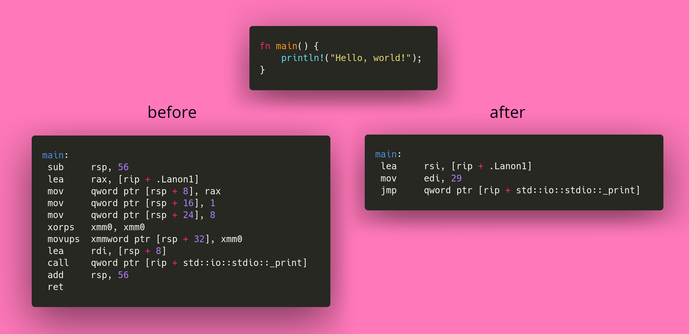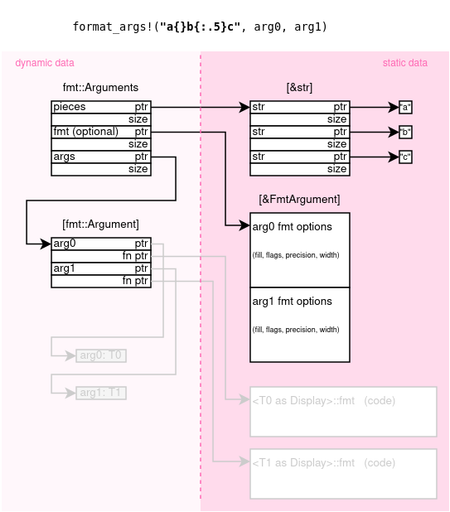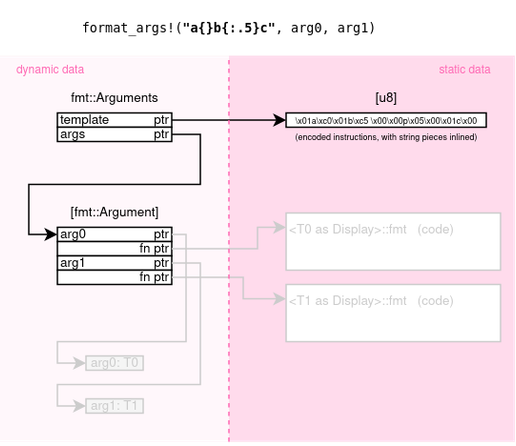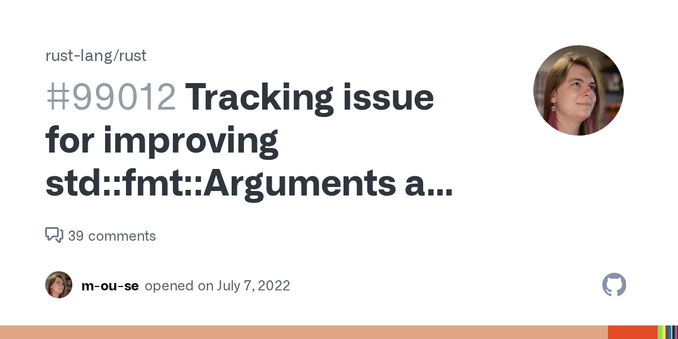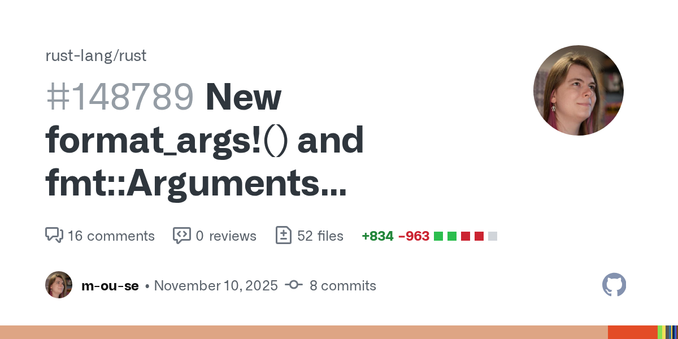🦀 I've improved the implementation behind all the string formatting macros in Rust: println!(), panic!(), format!(), write!(), log::info!(), and so on. (That is, everything based on format_args!().) They will compile a bit faster, use a bit less memory while compiling, result in smaller binaries, and produce more efficient code! 🎉
'Hello world' compiles 3% faster and a few bigger projects like Ripgrep and Cargo compile 1.5% to 2% faster. And those binaries are roughly 2% smaller. 🎊
This change will be available in Rust Nightly tomorrow, and should ship as part of Rust 1.93.0 in January.
